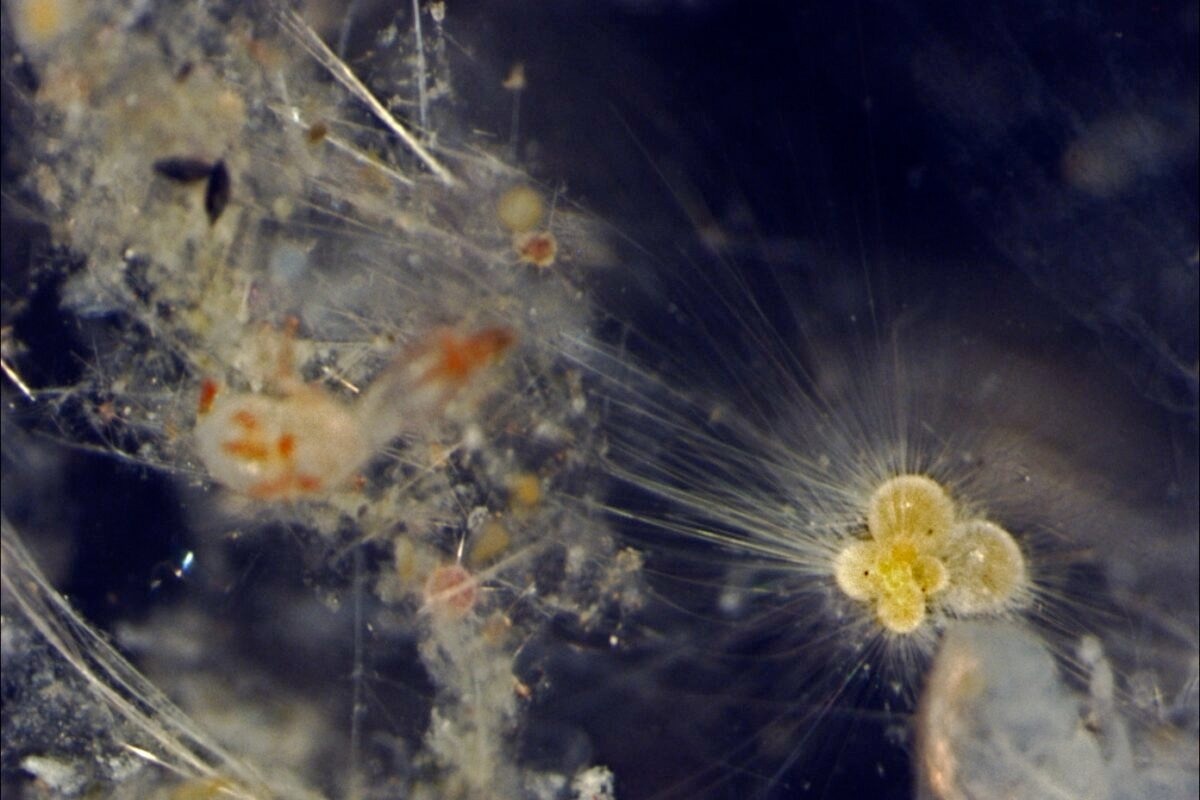The tropical oceans have the most diversified plankton populations on the planet, serving as the foundation of marine food chains. According to research led by scientists from the University of Texas at Austin, modern plankton biodiversity in the tropics is an amazingly recent development and the outcome of eight million years of global cooling.
 Plankton under a microscope. Researchers at UT Austin say that tropical plankton like this may vanish as the climate warms. Image Credit: Tracy Aze.
Plankton under a microscope. Researchers at UT Austin say that tropical plankton like this may vanish as the climate warms. Image Credit: Tracy Aze.
The discovery voiced concern that accelerated ocean warming will cause plankton to migrate away from the tropics, damaging ocean ecosystems, including those of significant fish such as tuna and billfish, as well as coastal communities that rely on them. The findings were published in the journal Nature.
The scientists discovered that the last time Earth was this warm—just before global cooling began 8 million years ago—tropical plankton populations thrived in waters more than 2,000 miles from where they are today. Researchers used microfossils to trace the history of a group of zooplankton called Foraminifera. Climate change has altered the natural cooling that has enabled plankton to thrive in the tropics over the last eight million years.
Earth’s current biosphere evolved for ice ages. By suddenly switching to an Earth of 8 million years ago, we’re not just killing off a few species, we’re changing the entire chemistry of the atmosphere and oceans, and nothing is ready for that.
Adam Woodhouse, Study Lead Author and Postdoctoral Fellow, Institute for Geophysics, University of Texas at Austin
Researchers conducted the study by analyzing a database of 500,000 microfossils gathered over 55 years of scientific ocean drilling. Each fossilized shell reveals where and when the plankton survived, how deep its habitat was, and the ocean conditions.
The scientists organized the data and compared it to a geologic record of past climate change. They discovered that plankton species were driven toward the equator as global cooling started eight million years ago.
By the modern era, the most diversified plankton populations had migrated to the tropics, with the poles becoming too harsh for all but a few specialized species.
With global temperatures and atmospheric carbon dioxide levels nearing those of eight million years ago, the results indicate that plankton species could leave the equator and migrate poleward.
Other investigations of modern plankton have already recorded signs of this starting to happen. Experts are concerned that the loss of diversity in plankton populations will result in a cascade of extinctions like those seen in rainforests following logging and fires.
The important thing now is to determine how the effect of climate change on those species will cascade across food webs.
Anshuman Swain, Network Scientist, Harvard University
Anshuman Swain co-led the research.
The investigators used a method popularly known for examining social structures such as Twitter to uncover connections between plankton evolution, habitats, and climate change over long periods of time. Network analysis, which was first used in sociology to investigate social interactions and friendships, is now being used in ecology and environmental science and could help inform steps to mitigate the negative effects of climate change, according to Swain.
Triton, a plankton database, was developed and published in 2021 by the Universities of Leeds and Oxford. The University of Maryland and the University of Texas Institute for Geophysics, a research unit of the Jackson School of Geosciences, funded the current study.
Journal Reference:
Woodhouse, A., et al. (2023) Late Cenozoic cooling restructured global marine plankton communities. Nature. doi.org/10.1038/s41586-023-05694-5.